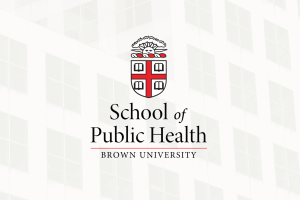The Health Services Research (HSR) doctoral program in offers training in research methods to advance knowledge of issues central to the improvement of population health by focusing on organizational characteristics of health care delivery systems, providers and economic forces that shape consumer and provider behavior, as well as the policy environment in which these relationships exist.
Students may opt to take a general HSR track or an emphasis area in:
- Pharmacoepidemiology
- Health Economics
- Comparative Effectiveness Research and Evidence-based Medicine
- or a customized analytic track.
Core courses:
- PHP2446: HSR Doctoral Seminar: Financing & Delivery (Fall semester), required for Year 1
- PHP2447: HSR Doctoral Seminar: Quality & Equity (Spring semester), required for Year 1
- PHP2090: Research Grant Writing for Public Health, required for Year 2
- PHP2150: Foundations in Epidemiologic Research Methods, elective
- PHP2200: Intermediate Methods in Epidemiologic Research, required in Year 1
- PHP2510: Principals of Biostatistics and Data, elective
- PHP2511: Applied Regression Analysis, elective
- PHP2455A: Health Services Research Methods I, required for Year 2
- PHP2455B Health Services Research Methods II, required for Year 2
- PHP2980: Graduate Independent Student Study and/or Thesis Research
Students are also expected to:
- Complete PHP1001, an online, noncredit introductory course
- Complete a noncredit online introductory course on Stata (required Year 1)
- Participate in the journal club series
- Complete the noncredit Responsible Conduct in Research (RCR) course
Within the Department, the major requirements for the Ph.D. are:
- Completion of three years of course work (two with a prior graduate degree)
- Demonstration of reaching experience via one TAship and one Teaching Experience with a focus on course design
- Synthesis of a core body of knowledge, evaluated via written examination.
- Demonstration of readiness to undertake original research, via oral presentation of prospectus or written dissertation proposal (oral exam).
- Submission of a dissertation grant to an external funder.
- Completion and oral defense of a dissertation that makes an original contribution to the chosen field of study
Upon completion of the Ph.D. program, students are expected to have proficiency in the following areas:
- Developing a strong foundation in contemporary approaches to health services research
- Designing a research study that can appropriately and efficiently examining a health services research question; writing and submitting a proposal to support and fund this research
- Conducting appropriate analyses of health research data using standard regression models in Stata, SAS or R
- Distinguishing between association and causation based on counterfactual theory to make causal inference using data obtained from experimental and quasi-experimental studies
- Learning to interpret and integrate multiple lines of scientific evidence concerning a particular topic of importance to the field of health services research
- Communicating scientific finding effectively
- Demonstrating mastery of a substantive area
- Reviewing, critically analyzing and synthesizing existing health services research literature to identify meaningful gaps in current knowledge and formulate research objectives

